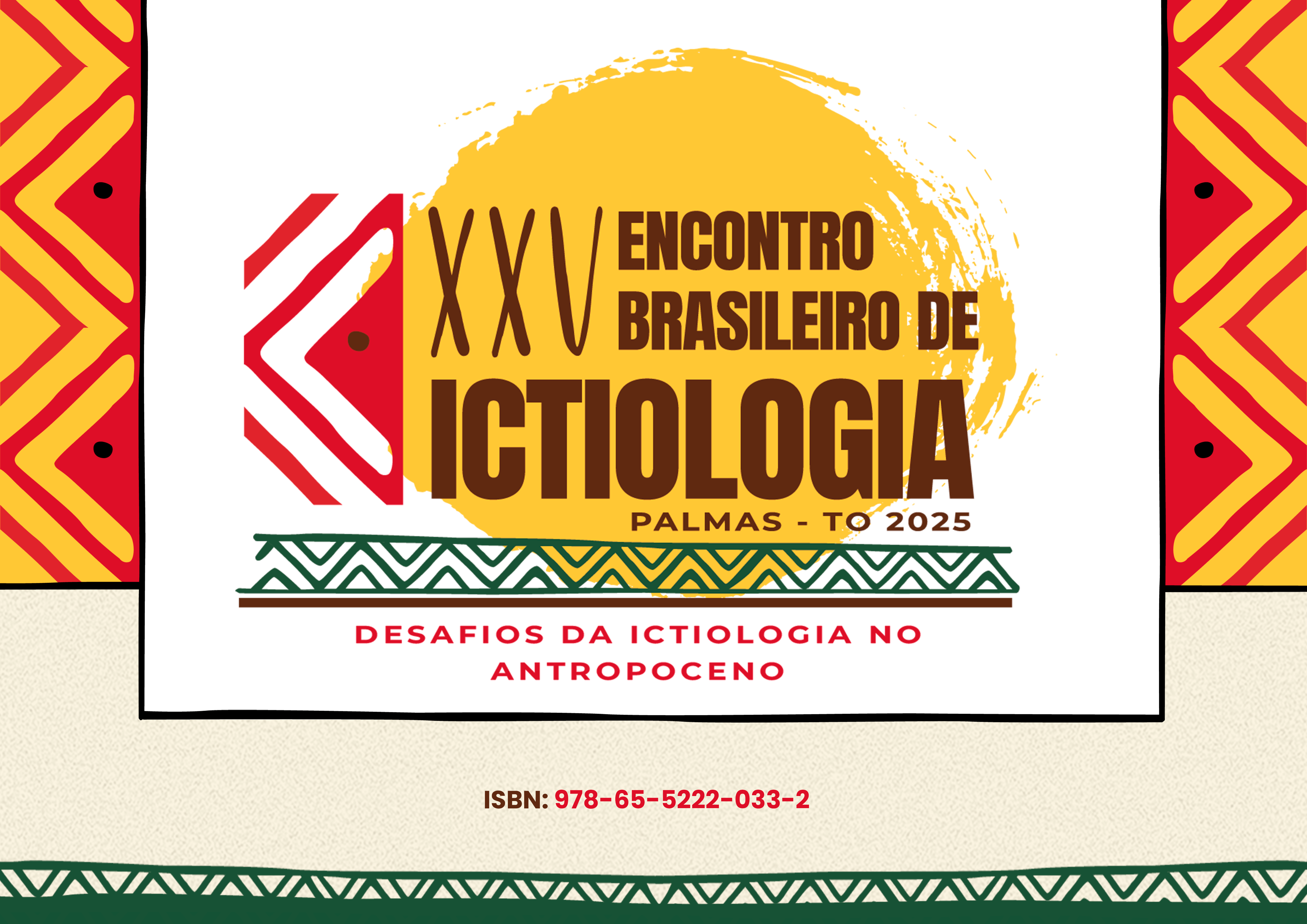THE ROLE OF OMNIVOROUS FISH PLASTICITY IN SUPPORTING HERBIVORY AND CORAL REEF HEALTH
"2025-02-12 10:36:07" // app/Providers/../Base/Publico/Artigo/resources/show_includes/info_artigo.blade.php
App\Base\Administrativo\Model\Artigo {#1845 // app/Providers/../Base/Publico/Artigo/resources/show_includes/info_artigo.blade.php #connection: "mysql" +table: "artigo" #primaryKey: "id" #keyType: "int" +incrementing: true #with: [] #withCount: [] +preventsLazyLoading: false #perPage: 15 +exists: true +wasRecentlyCreated: false #escapeWhenCastingToString: false #attributes: array:35 [ "id" => 120125 "edicao_id" => 384 "trabalho_id" => 637 "inscrito_id" => 396 "titulo" => "THE ROLE OF OMNIVOROUS FISH PLASTICITY IN SUPPORTING HERBIVORY AND CORAL REEF HEALTH" "resumo" => "Herbivory plays an essential role in coral reef ecosystems. Nominally herbivorous fish (HERB) contribute to coral settlement, sediment transport, and energy flow, transferring energy from primary production to higher trophic levels. Despite being less studied in terms of diet, omnivorous fish (OMNI) are generalists and may play important roles in algal consumption, influenced by various factors. Therefore, I investigated the herbivory performed by OMNI in reef environments to assess the redundancy and complementarity of these fish compared to herbivores and to understand the circumstances under which they primarily fulfill this function. A systematic review was conducted, compiling studies that demonstrated OMNI performing a herbivorous role. A total of 58 studies were selected, which analyzed foraging behaviors experimentally or in situ, as well as stomach contents, including relevant literature data. Twelve families were examined, the most common being Ephippidae, Pomacentridae, Sparidae, and Labridae. The items consumed were categorized into groups for better understanding, with the main categories being macroalgae (43%), animal matter (36.5%), others (including sediment, detritus, seagrass, and unidentified material; 17.5%), and turf (2%). Interestingly, OMNI often act as predators of herbivorous invertebrates while simultaneously consuming algae in the same niches. Additionally, OMNI can play a unique complementary role to HERB, whether by controlling invasive plant species or by reversing phase shifts from algae-dominated stages back to coral dominance. Factors influencing OMNI in fulfilling this role may be ontogenetic, geographic, environmental (i.e. impacts), or simply based on food resource availability." "modalidade" => "Comunicação Oral (CO)" "area_tematica" => "AT 01 - Ecologia e Conservação" "palavra_chave" => ", , , , " "idioma" => "Português" "arquivo" => "TRABALHO__EV205_MD1_ID396_TB637_07102024202105.pdf" "created_at" => "2025-02-13 11:08:16" "updated_at" => null "ativo" => 1 "autor_nome" => "DOUGLAS MORAES" "autor_nome_curto" => "DOUGLAS MORAES" "autor_email" => "douglasmoraesdm@gmail.com" "autor_ies" => "UNIVERSIDADE ESTADUAL DE SANTA CRUZ (UESC)" "autor_imagem" => "" "edicao_url" => "anais-do-ebi---encontro-brasileiro-de-ictiologia" "edicao_nome" => "Anais do EBI - Encontro Brasileiro de Ictiologia" "edicao_evento" => "XXV ENCONTRO BRASILEIRO DE ICTIOLOGIA" "edicao_ano" => 2025 "edicao_pasta" => "anais/ebi/2025" "edicao_logo" => null "edicao_capa" => "67b49e4d8c758_18022025115053.png" "data_publicacao" => null "edicao_publicada_em" => "2025-02-12 10:36:07" "publicacao_id" => 116 "publicacao_nome" => "Revista EBI" "publicacao_codigo" => "978-65-5222-033-2" "tipo_codigo_id" => 2 "tipo_codigo_nome" => "ISBN" "tipo_publicacao_id" => 1 "tipo_publicacao_nome" => "ANAIS de Evento" ] #original: array:35 [ "id" => 120125 "edicao_id" => 384 "trabalho_id" => 637 "inscrito_id" => 396 "titulo" => "THE ROLE OF OMNIVOROUS FISH PLASTICITY IN SUPPORTING HERBIVORY AND CORAL REEF HEALTH" "resumo" => "Herbivory plays an essential role in coral reef ecosystems. Nominally herbivorous fish (HERB) contribute to coral settlement, sediment transport, and energy flow, transferring energy from primary production to higher trophic levels. Despite being less studied in terms of diet, omnivorous fish (OMNI) are generalists and may play important roles in algal consumption, influenced by various factors. Therefore, I investigated the herbivory performed by OMNI in reef environments to assess the redundancy and complementarity of these fish compared to herbivores and to understand the circumstances under which they primarily fulfill this function. A systematic review was conducted, compiling studies that demonstrated OMNI performing a herbivorous role. A total of 58 studies were selected, which analyzed foraging behaviors experimentally or in situ, as well as stomach contents, including relevant literature data. Twelve families were examined, the most common being Ephippidae, Pomacentridae, Sparidae, and Labridae. The items consumed were categorized into groups for better understanding, with the main categories being macroalgae (43%), animal matter (36.5%), others (including sediment, detritus, seagrass, and unidentified material; 17.5%), and turf (2%). Interestingly, OMNI often act as predators of herbivorous invertebrates while simultaneously consuming algae in the same niches. Additionally, OMNI can play a unique complementary role to HERB, whether by controlling invasive plant species or by reversing phase shifts from algae-dominated stages back to coral dominance. Factors influencing OMNI in fulfilling this role may be ontogenetic, geographic, environmental (i.e. impacts), or simply based on food resource availability." "modalidade" => "Comunicação Oral (CO)" "area_tematica" => "AT 01 - Ecologia e Conservação" "palavra_chave" => ", , , , " "idioma" => "Português" "arquivo" => "TRABALHO__EV205_MD1_ID396_TB637_07102024202105.pdf" "created_at" => "2025-02-13 11:08:16" "updated_at" => null "ativo" => 1 "autor_nome" => "DOUGLAS MORAES" "autor_nome_curto" => "DOUGLAS MORAES" "autor_email" => "douglasmoraesdm@gmail.com" "autor_ies" => "UNIVERSIDADE ESTADUAL DE SANTA CRUZ (UESC)" "autor_imagem" => "" "edicao_url" => "anais-do-ebi---encontro-brasileiro-de-ictiologia" "edicao_nome" => "Anais do EBI - Encontro Brasileiro de Ictiologia" "edicao_evento" => "XXV ENCONTRO BRASILEIRO DE ICTIOLOGIA" "edicao_ano" => 2025 "edicao_pasta" => "anais/ebi/2025" "edicao_logo" => null "edicao_capa" => "67b49e4d8c758_18022025115053.png" "data_publicacao" => null "edicao_publicada_em" => "2025-02-12 10:36:07" "publicacao_id" => 116 "publicacao_nome" => "Revista EBI" "publicacao_codigo" => "978-65-5222-033-2" "tipo_codigo_id" => 2 "tipo_codigo_nome" => "ISBN" "tipo_publicacao_id" => 1 "tipo_publicacao_nome" => "ANAIS de Evento" ] #changes: [] #casts: array:14 [ "id" => "integer" "edicao_id" => "integer" "trabalho_id" => "integer" "inscrito_id" => "integer" "titulo" => "string" "resumo" => "string" "modalidade" => "string" "area_tematica" => "string" "palavra_chave" => "string" "idioma" => "string" "arquivo" => "string" "created_at" => "datetime" "updated_at" => "datetime" "ativo" => "boolean" ] #classCastCache: [] #attributeCastCache: [] #dates: [] #dateFormat: null #appends: [] #dispatchesEvents: [] #observables: [] #relations: [] #touches: [] +timestamps: false #hidden: [] #visible: [] +fillable: array:13 [ 0 => "edicao_id" 1 => "trabalho_id" 2 => "inscrito_id" 3 => "titulo" 4 => "resumo" 5 => "modalidade" 6 => "area_tematica" 7 => "palavra_chave" 8 => "idioma" 9 => "arquivo" 10 => "created_at" 11 => "updated_at" 12 => "ativo" ] #guarded: array:1 [ 0 => "*" ] }



